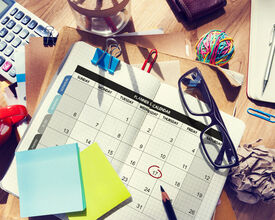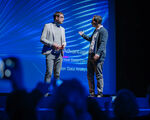Creating an event program can be trickier than you think. It doesn’t matter if you prepared awesome surprises for your guests or invited incredible speakers. Your event agenda will greatly influence the overall attendee experience.
So if you think that by designing a program you are just setting up a basic roadmap for your guests to navigate the event, be ready to fail. Event agendas are more about feelings, and less about logistics. Your attendees’ mood will depend greatly on how you structure the event schedule. If you aren’t careful, you may end up designing an event schedule that will bore, exhaust, or disengage your attendees (no matter how great your event is). And you probably don’t want this to happen.
So what can you do? Here are some tips that will help you design a friendly event agenda.
Tip #1. Avoid packing in too many activities
Minimalism is your best bet, even if you have good intentions and want to give the guests the most bang for their buck. You don’t need to invite an army of interesting speakers and organize multiple sessions one after another to create a memorable event.
A jam-packed agenda could make your attendees feel dizzy or disoriented. Humans have a limited capacity to focus their attention or stay engaged. Instead of packing your event’s agenda with a ridiculous number of round tables, workshops, and networking dynamics, prepare a simple schedule with few quality activities.
Don’t stress your attendees out by asking them to jump from activity to activity around the clock. Reducing the number of activities will help them enjoy your event more.
Tip #2. Use the time frameworks wisely
Be mindful of your time frames. For example, you can’t expect your guests to arrive at 8 a.m. to participate in a round table when you organized a cocktail party for them at 10 p.m. the night before.
Obviously, most attendees will want to come to the round table later. So avoid scheduling intense sessions first thing in the morning. Also, be sure to schedule the coffee and meal breaks at convenient hours. For example, you shouldn’t schedule a coffee break at 1 p.m., and then, after a brief session, schedule lunch at 2 p.m. It’s better to plan the coffee break before 11 a.m. to equilibrate the activities.
Tip #3. Secure enough breaks and social activities
To avoid making your guests feel tired or disconnected, be sure to schedule enough breaks or social activities, such as guided tours, museum visits, board games, etc. This way, your attendees will regain their energy and be able to better retain the information they learn during the sessions.
Tip #4. Alternate activities
Engage your attendees more by designing different types of event dynamics. Instead of preparing a monotonous day dedicated to round tables only, consider diversifying the event agenda by introducing new dynamics, such as fireside chats, speaker panels, TED-style presentations, etc. Don’t forget to keep it simple. Organize a well-structured schedule and diversify the session formats to alleviate potential boredom.
Tip #5. Provide all the information your attendees may need
One of the most important elements of designing a great event agenda is providing your participants with all the necessary data. For example, if the sessions are being held in different rooms, don’t forget to include this in the program. Also, don’t forget to indicate when each session starts and finishes. This way, the attendees will know each activity’s time frames in advance. Be sure your event agenda raises no doubts or questions. Make it as clear as possible.
Call to action
The next time you design an event agenda, think about your attendees. Avoid adding too many activities they’ll be too tired to enjoy. Provide enough breaks and social activities to help them feel refreshed, and diversify the session formats to maintain their attention. Don’t forget about setting reasonable time frameworks that align with their needs. Finally, be sure to provide a detailed event agenda that won’t cause confusion or questions. Good luck!








